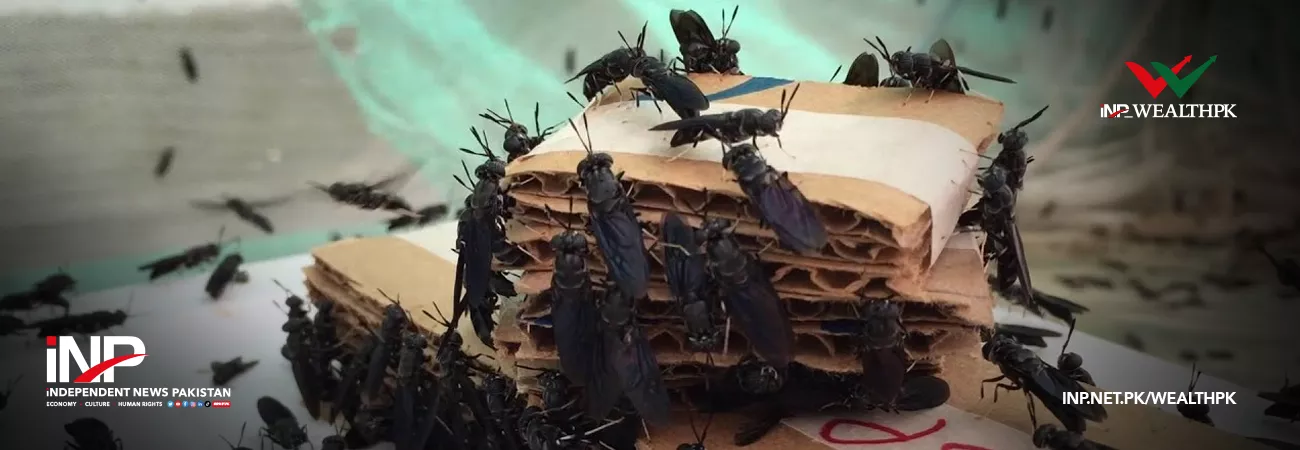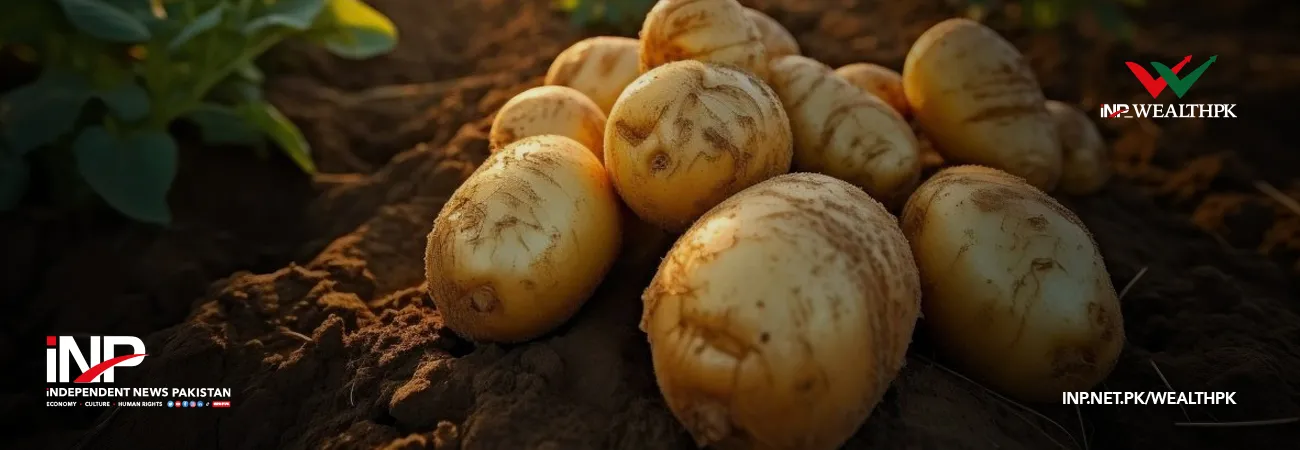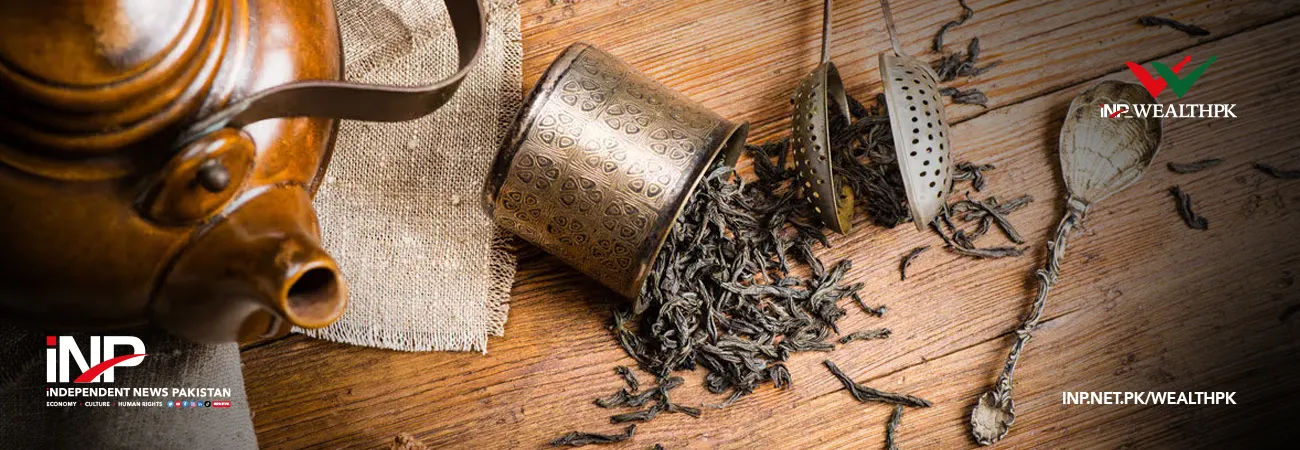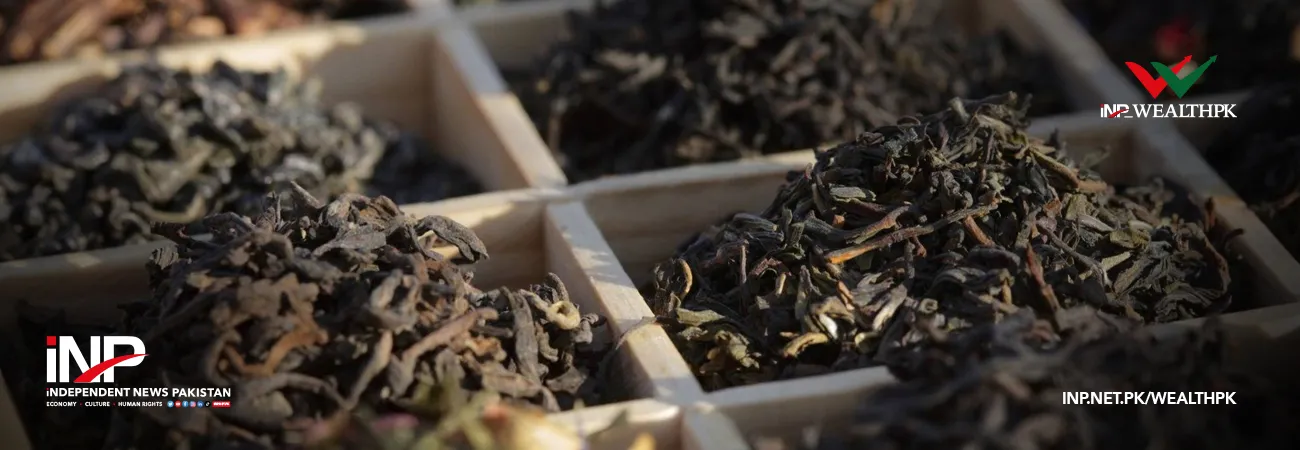INP-WealthPk
Faiza Tehseen
Production of black soldier fly (BSF) needs to be promoted as an industry in Pakistan to strengthen the agriculture sector, said the Khyber Pakhtunkhwa Agricultural Research System Principal Research Officer Dr. Muhammad Shah Sawar while talking to WealthPK. Dr Shah said among all animal proteins to feed bio flocks, BSF was the best and cheapest source to provide ample quantities of protein in a comparatively short time span.

“Sixty percent of the farm expense incurs on feed only. Mostly, soybean is used as feed, as it packs 48% protein. A special setup like a laboratory is needed to simulate the environment and temperature required for its growth and production. BSF is a scavenger and a shy wild insect that only thrives on the decaying organic matter. It is three times bigger than the common housefly and like the housefly, it never buzzes around eatables.
Its life span is not more than 5 to 10 days; normally its deposits are close to 500 eggs. On regular feed supply, larvae grow for 10 to 28 days and enter the pupa stage after which they transform into adults for further production,’’ he said. He said, “BSF larvae hatch mostly after four days and are full of nutrients.

Normally, one gram consists of 37,000 eggs, and production of larvae from only five grams consumes 1 ½ tons of decaying organic matter to produce 700kgs of protein (larvae) and 300kgs of best compost/frass fertilizer and biodiesel as well. Larvae are also dried to make rich nutritious feed for poultry, swine, shrimps, prawns, fish bio flocks, etc. Mostly, dried larvae are imported from China and largely used as the aquarium fish feed. It is normally sold at PKR2700 per kg.
Dried larvae contain 42-45% of protein. It is important to maintain the temperature between 25⁰ and 35⁰ centigrade for BSF to avoid hibernation. At this temperature, they do not hibernate at all. The adults die after 3 to 4 days in this situation. At a favorable temperature, larvae hatch in 10 days.’’ Dr Shah further said, “BSF rearing can be done in a corner of the backyard. The organic matter should not be thrown out, as the BSF consumes it.
In this way, free proteins are produced and the poultry and bio flock feed on it. Isn’t it amazing? Dry larvae can also be sold. No special machinery is needed to dry the larvae. You can do it through hot water, or in a simple oven. Establishment of a setup is also economical and can be arranged between PKR70,000 and PKR100,000. Even a low-cost setup remains for 8 to 10 years. The cost depends upon the production size.
If you are arranging it for 200-300 hens, or for four tanks of bio floc fish farming, a total of 2,720 sq. feet is required of which 544 sq. feet should be covered.’’ The Khyber Pakhtunkhwa Agricultural Research System principal research officer said BSF in Pakistan was mostly brought from Indonesia, but the Pakistani strands were of superior quality. The Pakistani BSF is small in size but the larvae are the same in size as the Indonesian one. Globally, the BSF industry has become a billion-dollar business. China, Canada, Australia, among other countries, are considered great players in this industry.
The global market size of frass fertilizers is expected to grow US$319.7 million by the year 2029 at a compound annual growth rate (CAGR) of 24.3%, while the international market size of BSF is projected to grow to US$3.03 billion at a CAGR of 30.5% by the year 2032 from US$ 0.21 billion in 2022. It is important to introduce our farmers to innovations, new trends, and non-conventional ways of farming. Pakistan is an agricultural country and farmers’ prosperity is a sign of its development and economic uplift.
Credit : Independent News Pakistan-WealthPk













